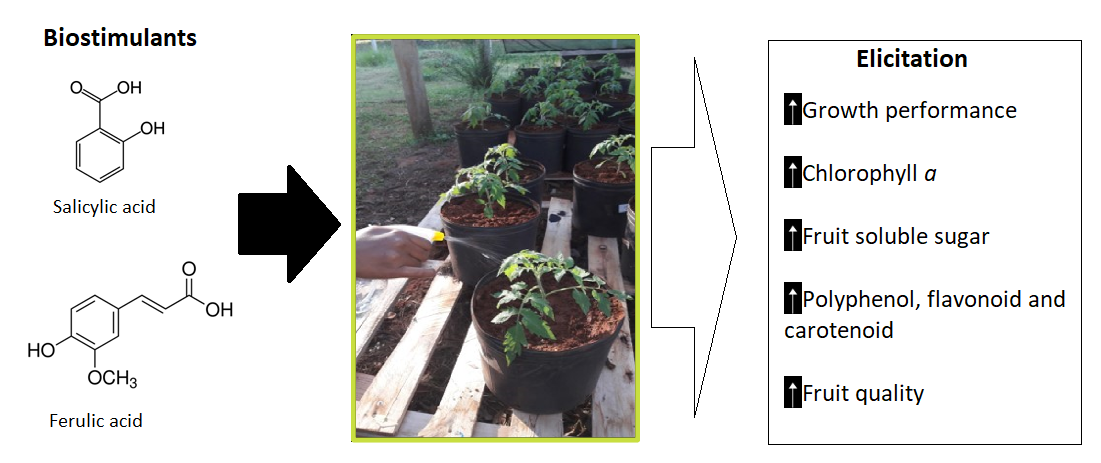Exogenous salicylic acid and ferulic acid improve growth, phenolic and carotenoid content in tomato

Published 2021-09-17
Keywords
- Lycopersicon esculentum,
- elicitation,
- phenolic compounds,
- fruit quality,
- secondary metabolites
How to Cite
Abstract
Salicylic acid (SA) and ferulic acid (FA) are considered phenolic compounds that act as elicitors due to their regulatory functions on plant growth, development, metabolic and physiological responses in plants. The aim of this research was to evaluate the effect of SA and FA on growth, fruit quality and synthesis of secondary metabolites in tomato (Solanum lycopersicum cultivar Santa Clara). The experiment was conducted in pots in a greenhouse. The application of SA and FA was performed at concentration of 1.0 mmol L-1 alone and in combination, with water treated plants as control. Exogenous application of SA and FA either alone or in combination (SA + FA) resulted in increases in biomass accumulation and chlorophyll contents in tomato plant; and soluble sugar, total polyphenol, flavonoids, lycopene and β-carotene contents in fruits. It was concluded that application of SA and FA resulted in higher production and concentration of secondary compounds in tomato.






